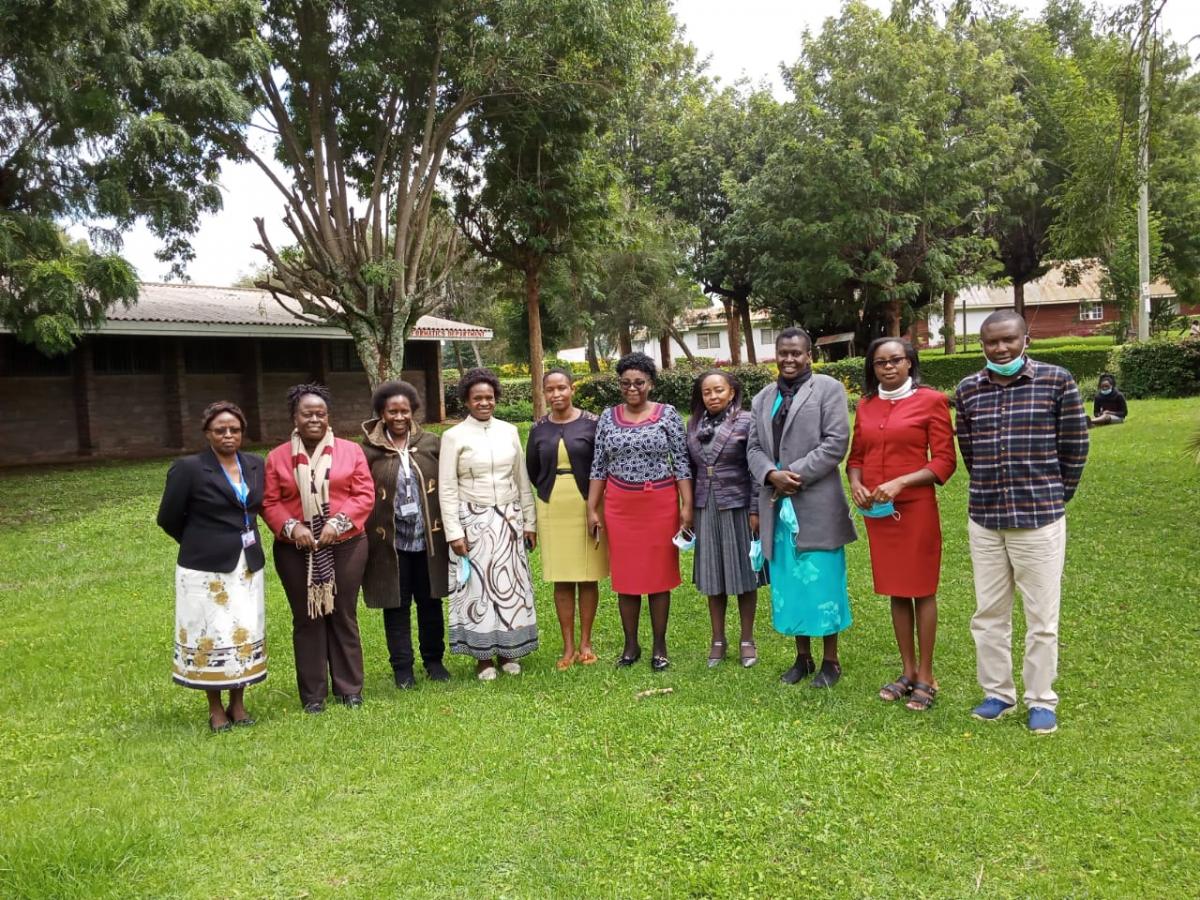The University Library hosted the Open Access Policy Formulation, Adoption and Implementation Forum which was sponsored by the Electronic Information For Libraries (EIFL), under the Kenya Libraries and Information Services Consortium (KLISC) umbrella on 21st July 2021 in the University Board Room. This was intended for the University Management, Teaching staff and librarians.
The forum was attended by the two Deputy Vice-Chancellors (DVCs): Ag.DVC (ARSA) Prof. Vicky Khasandi- Telewa and Ag. DVC (AFP) Prof. Isaac Ochieng, albeit partially. The training was attended by several librarians. It was declared open by the Ag. DVC (ARSA). She expressed appreciation to Eifl for funding training on the creation of the Information Repository for Laikipia University. Ag. DVC (AFP) also gave his remarks on Laikipia University benefiting from the training.
Sufficient capacity was created for Laikipia University to begin populating the Information Repository which was successfully launched by the DVC (ARSA) on the same day. This was a blended workshop with Ms. Iryna Kuchma (Eifl, the donors of capacity building and expertise aspects of the forum based in Netherlands), Dr. G.G. Njoroge (The country coordinator for Eifl) and Dr. Sarah Kibugi (KLISC Treasurer, representing KLISC executive) giving their remarks and training virtually.
In the opening remarks Dr. Sarah Kibugi highlighted the role of KLISC in enhancing access to information, Institutional Repositories and Policies. She detailed KLISCs’ objective as geared towards facilitating better access and application access of scientific information in research, teaching, and learning and in areas of policy making and implementation.
Topics covered were on:
- Introduction to Open Access: Institutional Repositories and Open Access Journals presented by Dr. G. G. Njoroge. He specified that the main objectives of the training were four fold:
- To launch the Information Repository for Laikipia University.
- To create an Information Policy for Laikipia University.
- To create awareness on signing of the Berlin Declaration of Open Access.
- To create champions for Laikipia University Information Repository management.
- Emerging Trends in Open Access Movement presented by Ms. Iryna Kuchma. She advanced the view that data should be as open as possible and closed as necessary to enable research while not exposing protected data. Open access is necessary as evidenced by experiences abroad. Open access enables ownership of intellectual property by giving protection. Several examples were given.
- Administrative and Technical Issues in Setting up an Institutional Repository in Kenya presented by Dr. G.G. Njoroge. The role of Open Access as provided by information repositories was identified to enhance visibility and accessibility of research data. Information repositories enable the management of institutional digital output while enabling collaboration with other researchers.
- Publishing in Open Access and Publishing Platforms/ Infrastructure for Local Journals presented by Ms. Miriam W. Ndung’u. She observed that it was important for the journals published by Laikipia University to be indexable by Google Scholar hence the importance of having a DOI number (document online identifier)
- Open Access Policy Development and Implementation presented by Dr. Peninah Musangi. She advised that the membership of the Open Access Policy should be drawn from diverse offices.
- Contributions of Open Access on Institutional and Individual Visibility (Web metrics) – ORCID, Google Scholar presented by Ms. Miriam Ndung’u. She emphasized the need for each researcher/ publisher to have unique identification for ease in online indexing. Hence ORCID and Google Scholar.
- Copyright, Licensing and Plagiarism Issues presented by Dr. Peninah Musangi.
Documents required to govern the Information Repository were identified as:
- The Institution Open Access Policy,
- Institutional Portal Policy, and
- The Deposit Agreement
The above, work hand in hand, and all need to be created by the Institution.

